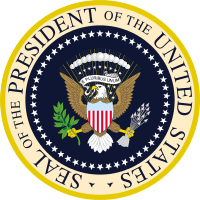1791 State of the Union Address
By tradition, the President of the United States gives an annual report to both houses of Congress. The 1791 State of the Union Address was given on October 25, 1791, in Philadelphia. It was the third of such speeches and it was given by the first president, George Washington.
Historical Background
The third annual State of the union Address was given by President George Washington, to a joint session of Congress, theUnited States House of Representatives and United States Senate. A major concern at the time was the raising of taxes, as the Congress was arguing if they had the constitutional power to do so. Revenues at the time for the Federal Government were mostly collected on import duties. Alexander Hamilton, then the Secretary of the Treasury felt these fees had been raised to as high a level as reasonable, and a new income stream was necessary. [1]
Speech
Washington opened the speech with "I meet you upon the present occasion with the feelings which are naturally inspired by a strong impression of the prosperous situations of our common country, and by a persuasion equally strong that the labors of the session which has just commenced will, under the guidance of a spirit no less prudent than patriotic, issue in measures conducive to the stability and increase of national prosperity."[2]
His main points of concern were the Bank of the United States, prosperity of the young nation and the defense of the western border as it existed at the time. Washington admonished those along the border and their treatment of the Native Americans, stating "In vain may we expect peace with the Indians on our frontiers so long as a lawless set of unprincipled wretches can violate the rights of hospitality, or infringe the most solemn treaties, without receiving the punishment they so justly merit." [3]
Policies
Washington spend a good deal of the speech trying to convince the Native Americans to become part of the United States, as well as convincing the citizens of the country of the importance of doing so.
He pushed the Senate to ratify the treaties pending before that House with the Cherokees and Six Nations of Indians (Iroquois Confederation) [4]
He stated that the House needed to act on bills to ensure the financial security of the nation.
Washington defended the need for the unpopular "Whiskey Tax" a leading cause of the Whiskey Rebellion [5]
References
- ↑ Chernow, Ron. Alexander Hamilton. New York: Penguin Press, 2004. ISBN 1-59420-009-2.
- ↑ http://www.infoplease.com/t/hist/state-of-the-union/3.html
- ↑ http://www.presidency.ucsb.edu/ws/?pid=29433
- ↑ http://www.presidency.ucsb.edu/ws/?pid=29433
- ↑ http://www.stateoftheunionhistory.com/2016/01/1791-george-washington-whiskey-tax.html
